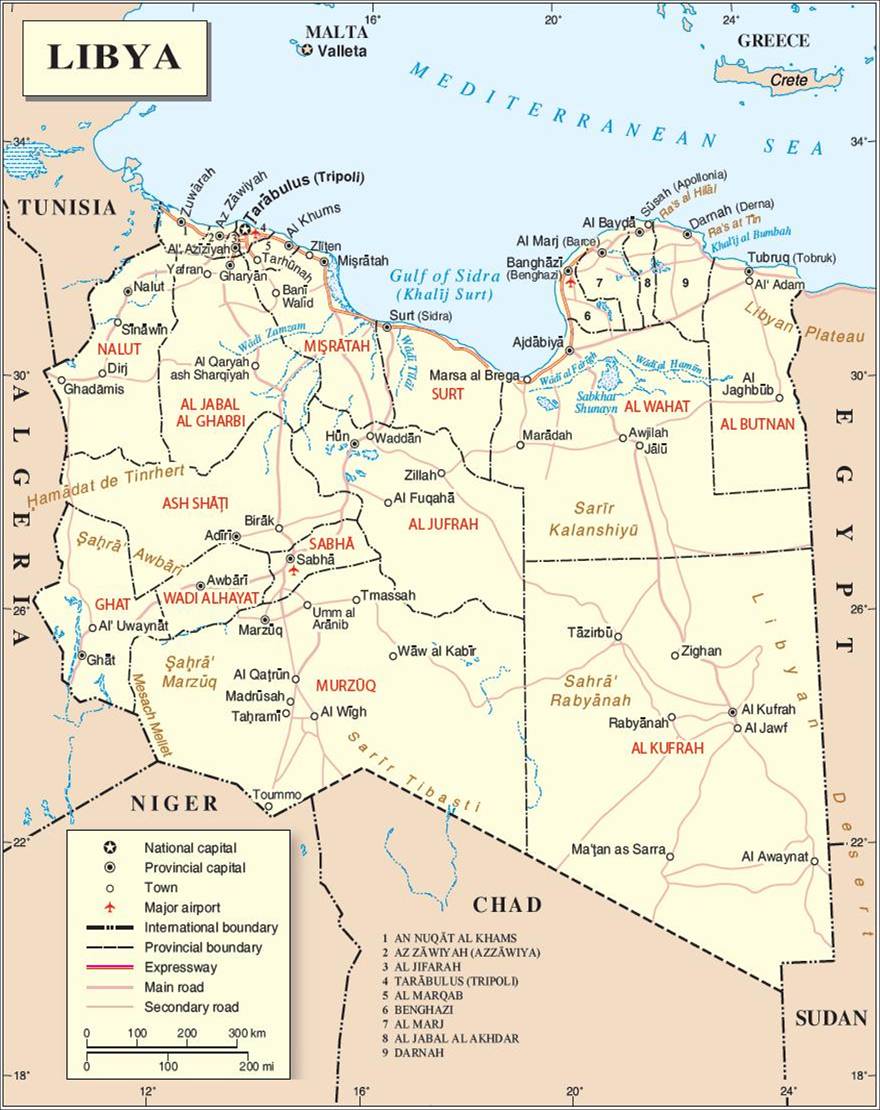Political
Interior Minister Ashour Shuwail was sworn into office by the National Assembly on 11 December, with a total of 86 votes in favour out of 114 representatives. The Supreme Court still has to decide on an integrity committee’s ruling against Shuwail. After being approved, Shuwail told the assembled representatives that his ministry will now integrate rebel brigades and collect heavy weapons. An Al Jazeera report on 14 December reported that Shuwail stated that the wave of assassinations and explosions in Benghazi was the greatest challenge facing his ministry at present.
On 17 December, the General National Congress (GNC) declared the south of the country and other border area as closed military zones with immediate effect. The areas around Ghadamis, Ghat, Awbari, Al-Shati, Sebha, Murzuq and Kufra were designated as closed zones of military operations. They also announced the temporarily closure of the borders with Niger, Chad, Sudan and Algeria. Members voted to closeLibya’s southern borders with a majority of 136, but said that they would reopen them within a undisclosed time frame, in coordination with neighbouring states. According to the legislation, the Ministry of Defence must appoint a military governor for the south, who will be given full powers to arrest those currently wanted for crimes in the area. Unrest and insecurity has continued to plague much of the south since the end of last year’s revolution. In early December around 20 GNC Congress members from the southern provinces walked out in protest at the deteriorating security in their region.





